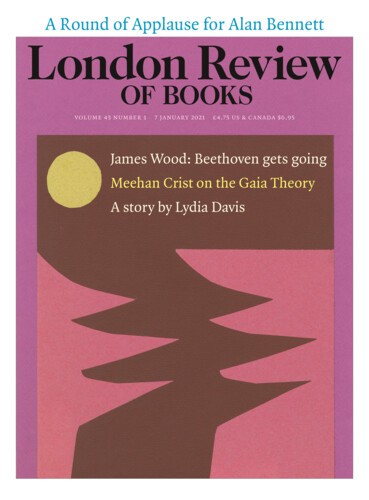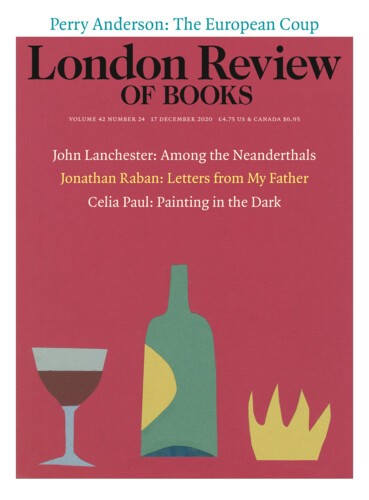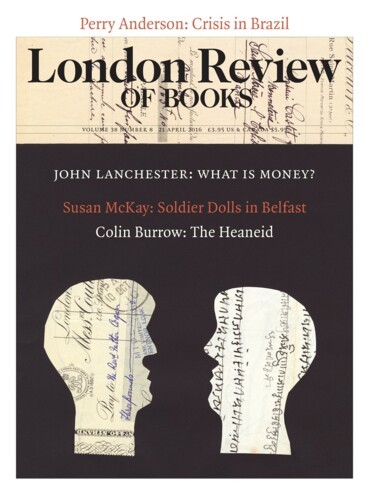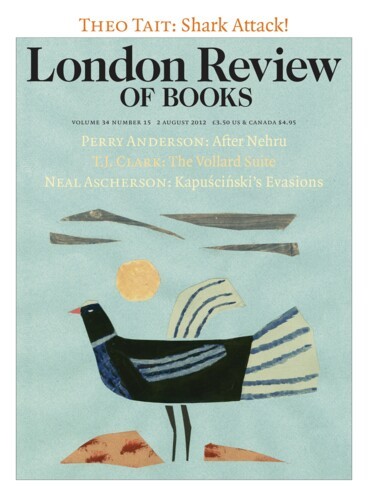Perry Anderson
Perry Anderson’s books include Lineages of the Absolutist State, The Origins of Postmodernity, Passages from Antiquity to Feudalism and Ever Closer Union? Europe in the West. He is a professor of history and sociology at UCLA and sits on the editorial board of New Left Review. He has written more than fifty pieces for the LRB, on subjects including his father’s career in the Chinese Customs Service, Lula’s Brazil, Michael Oakeshott, Anthony Powell, Dmitri Furman, the modern political histories of Italy, Turkey, France, and India and the failings of the EU.
Goodbye to Europe
17 December 2020
Crisis in Brazil
20 April 2016
Gandhi and After
2 August 2012
Gandhi and After
19 July 2012
Pieces about Perry Anderson in the LRB
You need a gun: The A-Word
Wolfgang Streeck, 14 December 2017
What is the relationship between coercion and consent? Under what circumstances does power turn into authority, brute force into legitimate leadership? Can coercion work without consent? Can...
So it must be for ever: American Foreign Policy
Thomas Meaney, 14 July 2016
‘It is a sign of true political power when a great people can determine, of its own will, the vocabulary, the terminology and the words, the very way of speaking, even the way of...
What We Have: Tarantinisation
David Bromwich, 4 February 1999
Post-Modernism entered the public mind as a fast-value currency in the late Seventies and early Eighties, in the field of architecture, where its association with gimmicky tropes of visual play...
Post-Nationalism
Geoffrey Hawthorn, 3 December 1992
For the past thirty years, New Left Review has been the most consistently interesting political journal in the country. And Perry Anderson, who used to edit it and still helps direct it, has been...
What would socialism be like?
Geoffrey Hawthorn, 1 March 1984
Joseph Schumpeter had a refreshing sense of socialism. For him, it had almost no fixed sense at all. ‘A society may be fully and truly socialist and yet be led by an absolute ruler or be...
English Marxists in dispute
Roy Porter, 17 July 1980
The Englishness of English historians lies in their eclecticism. Few would admit to being unswerving Marxists, Freudians, Structuralists, Cliometricians, Namierites, or even Whigs. Most believe...
Read anywhere with the London Review of Books app, available now from the App Store for Apple devices, Google Play for Android devices and Amazon for your Kindle Fire.
Sign up to our newsletter
For highlights from the latest issue, our archive and the blog, as well as news, events and exclusive promotions.





